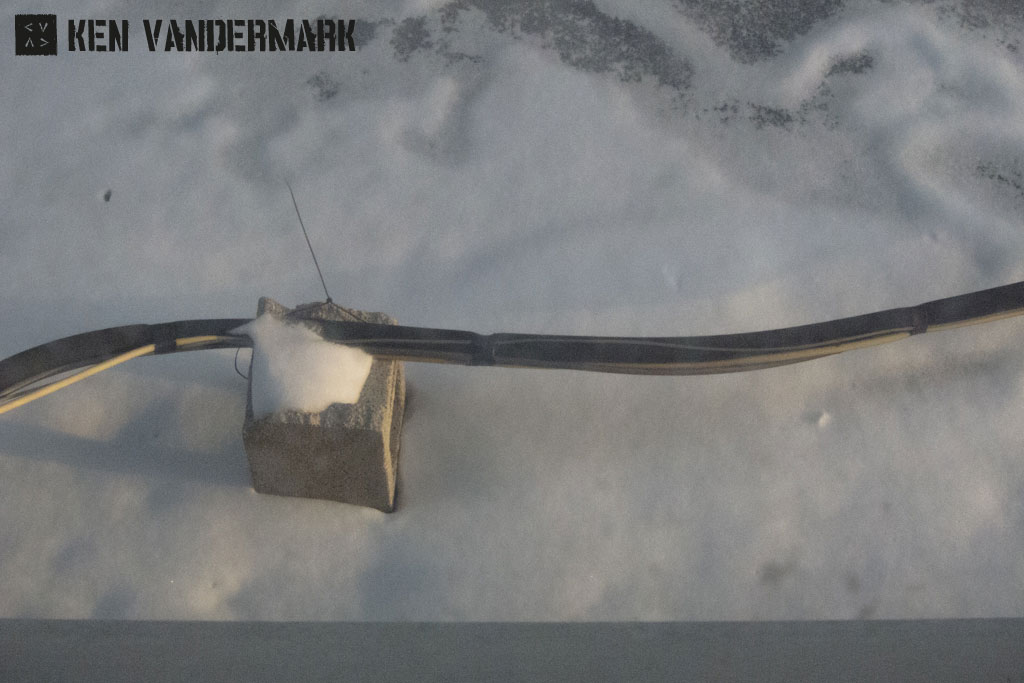

DR: But just bringing Andrew into the discussion…Andrew, you studied in Chicago, and Ken has been central to improvised music in Chicago, I wondered if you say a little about that ‘Chicago scene’..?
Andrew Morgan: I think that Ken and I came to improvisation from different paths, so to speak. My studies were always in contemporary classical music and doing other forms of music alongside it. My introduction to the sort of freedom that you get in improvisation was through Earle Brown, Krysztof Penderecki, Witold Lutoslawski and John Cage, obviously; and this sort of world was my trajectory into improvisation and playing free on ‘cello. Coming into that world of free playing, Chicago has a really vibrant community of musicians doing all sorts of things. A lot of musicians come from the jazz world, and had gone through Coltrane to free improvisation of the kind you’re talking about, whereas there are also a few of us who came from the other direction. But there were a lot of the same ideas, philosophies or discussions that could be witnessed in the classical world as well: Boulez saying, ‘no octaves!’ is rather like “I can’t believe you just played a minor third!” These are extreme viewpoints or prescriptions as to how music should be played or written. A lot of these ideas have played themselves out which is also great for someone like me who does not necessarily subsribe to a school, so I can write the music I want to write and do the things I want to do, and just get on with it. I studied at Chicago and did then did my postgraduate studies here in London, so I got to taste the European morals as well…
DR: What about the traditions of jazz in Chicago…how present are they? Not just traditional jazz, but also the experimenters like the Art Ensemble of Chicago, or the AACM, for example…?
KV: In terms of its presence now?
DR: Yes.
KV: Well, you know Chicago is a classic American city for music as a whole, its rather like New York or New Orleans where there are all kinds of music going on; of all genres. So the audiences there tend to be really schooled musically and really open-minded. The AACM are still doing things, but the core group of original organisers… many have long left, but the principles of the group have been continued by another generation.
AM: Perhaps we should quickly explain who the AACM are?
KV: Right. It’s the Association for the Advancement of Creative Musicians, that’s the acronym. It’s primarily a black American Collective, which organises concerts, recordings, they have a school to teach kids; very community orientated and, importantly, self-determining; and a similar organisation in St. Louis the Black Composers’ Group, and somewhat similar organisation in New York, the Jazz Composers’ Guild. In the case of Chicago, it was black American musicians saying, ‘OK, we’re going to run this now, we are going to have our own thing’ for many obvious reasons. The instigation was in the 60s, but they are still active, organising many concerts with some great musicians having gone through that system. And so that history is there, and there are a bunch of new things going on, that aren’t so specific – like an organisation or a collective. But maybe influenced by them, and maybe influenced by other self-determining ideas, Chicago has many musician-organisers; people who run series. As in London – last night I played with the London Improvisers Orchestra, and that’s a similar set-up. If you are serious about playing this music then sooner rather later you’ll find yourself having to organise – as this is precious to you and maybe not every presenter in the world. And this is very common in Chicago. There is this history connected to jazz – and that goes right back to the beginnings, certainly, from the 1920s, with some brilliant artists each decade and within each generation. Since then it has been an important centre for jazz; perhaps not quite as well known as the scene New York, but it’s been very important for a century now.
© 2024 Ken Vandermark – musician & composer | Disclaimer